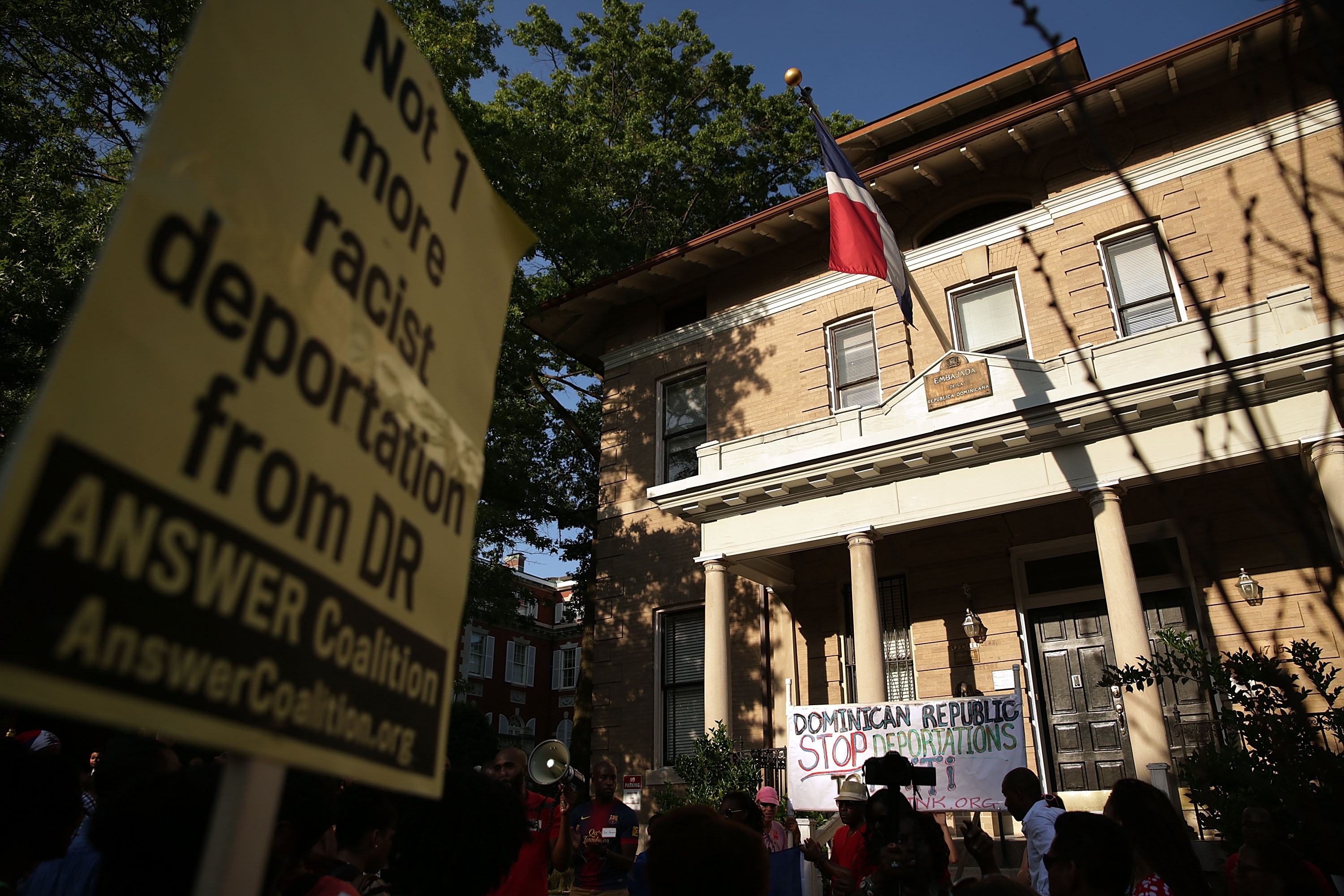
Conflict has existed between Haiti and the Dominican Republic (DR) for decades. We are currently witnessing these legacies being played out on the world stage thanks to the deportation of undocumented Haitian immigrants from the country. It’s reported that nearly one million Haitians live in DR and only a small percentage of them are legal immigrants. I am of the opinion that non-citizens (Haitian or otherwise) that did not submit applications to establish residency in DR should be deported. All countries have a right to draft and uphold their own immigration laws. However, razor sharp infrastructures and systems must be in place to do this.
The two nations, whom share the island of Hispaniola, also have a shared history of colonialism, oppression, slavery, dictatorship and poverty. A common history would suggest that both nations should be able to move forward with governing and adhering to policies that would support each other’s advancement. This is unfortunately not the case. The island has deep-rooted prejudices around race, language, class and religion that are a direct result of the values and the long-standing feuds between the countries that colonized them, France and Spain.
Today’s immigration problem can be traced back to the ruthless dictatorship of Rafael Leonidas Trujillo who ruled the Dominican Republic from 1930 until his U.S. led assassination in 1961. Aside from killing and torturing his Dominican opponents he took inspiration from another dictator of the time: the racial purist Adolf Hitler. Following the German’s lead, he massacred thousands of Haitians because of their skin color (most notably the Perejil Massacre of the 1930s) and opened up the borders to European Jews in efforts to “whiten” DR. Similarly, Haiti massacred whites in the early 1800’s in order to avenge the decades of slavery Africans endured under French colonialism.
Trujillo’s killing of Haitians was ironic considering he himself was of Haitian descent. The disdain he had for Haitians and dark skin – including his own since he was known to use face powder to appear whiter – continues to impact how we as Dominicans view ourselves and our black roots.
As a native born Dominican I can safely say that most of my people are generally ethnocentric, color struck and have utter disregard for darker complexions. The disrespect that Dominicans exhibit towards Haitians and Black communities in the U.S. and in the DR is historical and undeniably present today. However, discriminatory beliefs and actions surrounding colorism is not an issue exclusive to Dominicans. It’s a universal problem.
I think it is unfair to argue that color/race is the sole factor as to why Haitians are being treated unfairly. I believe that economics is the central construct surrounding the deportation debate. Dominicans see Haitians as problematic, particularly noncitizens, because they believe Haitians will drain the limited resources of a still developing country. The Dominican Republic is a nation whose people regularly leave their patria behind searching for a better life. The thought of hosting new inhabitants in an already compromised economy is a threat to their livelihood, particularly as it relates to agricultural jobs and other employment opportunities, legally recognized or not. What I believe complicates this conversation is the country’s lack of experience, finesse and resources to address such socio- economic structural and systemic issues like immigration, race/cultural relations, ideologies and poverty.
While the Dominican Republic is in much better shape economically than Haiti, let’s not be fooled by the romantic tourism campaigns that draw visitors in – Presidente beer, clear water beaches and the impossibility of sensuality. The Dominican Republic is very much divided between rich and poor towing the line of bone crippling poverty.
Deportation in all countries is a sensitive issue and a necessary evil. Given the histories of both countries, however, the deportation process in DR should happen in a transparent manner where due process is exercised, not based on racial stereotypes that violate individual’s basic human rights (dark-skinned people whether they are Haitian or not are often the people being deported). Unfortunately, corruption and fear-based leadership—the sons of the orgasmic need for power and money—sit in the soul of the Dominican Republic’s political maneuverings. Trujillo’s ghost still hovers the air. While no clear cut solution has been employed, I remain optimistic that a just and fair process will address the deportation issue, address immigration reform, and will be implemented. With international organizations such as The Organization of American States and Americas at Amnesty International USA are facilitating changes via dialogue with key officials from both nations. While cliché, we know better and we should make all efforts to do better.
